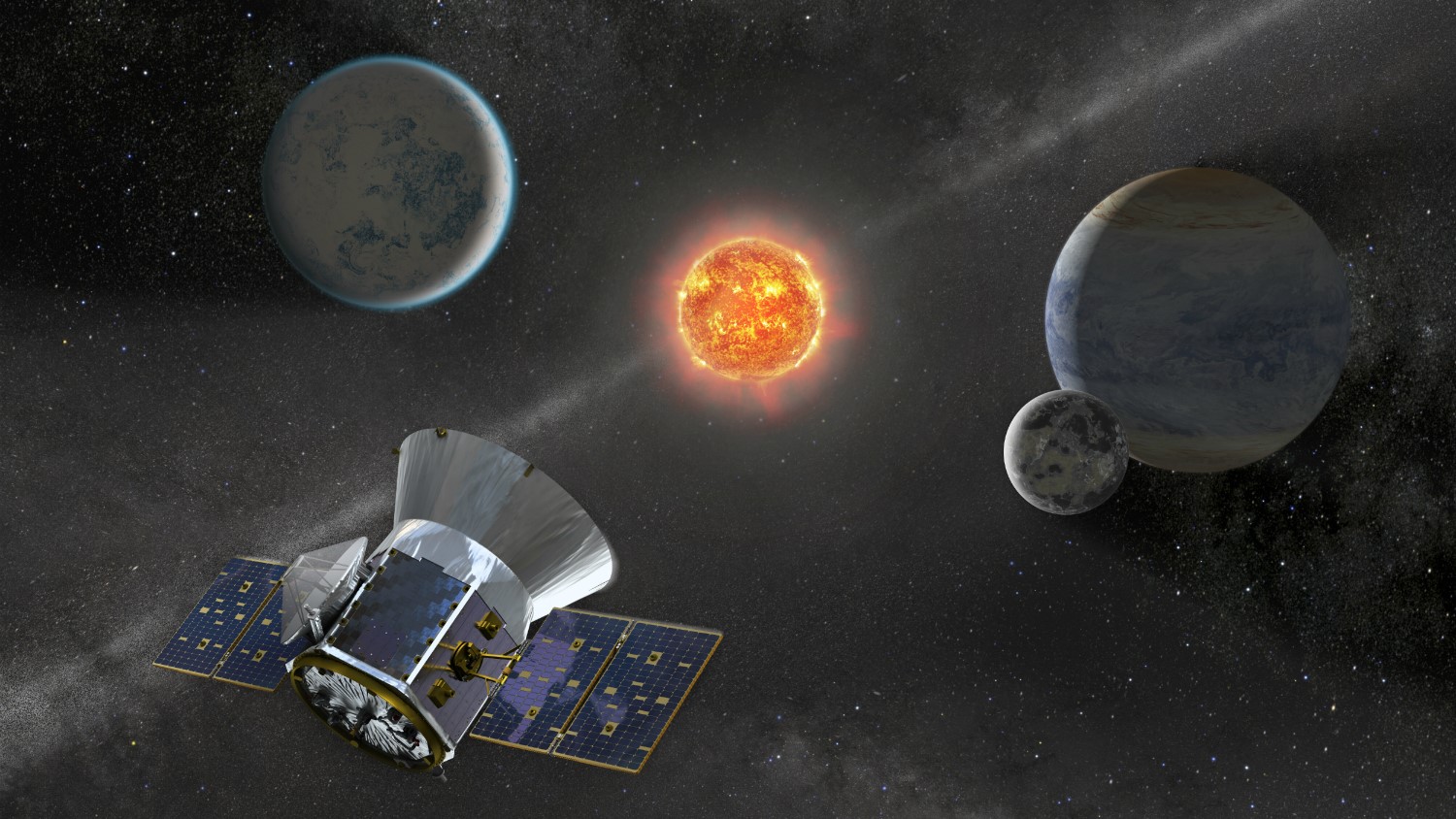NASA's TESS exoplanet hunter in safe mode after computer glitch

Update: TESS resumed normal operations on Thursday (Oct. 13) and is expected to resume science observations on Friday (Oct. 14), according to a NASA statement.
NASA's planet-hunting mission is in safe mode after a computer glitch hit the spacecraft on Monday (Oct. 10).
NASA's Transiting Exoplanet Survey Satellite (TESS) mission launched in 2018 to survey the sky looking for exoplanets. TESS was designed to operate for two years but has continued observations, identifying more than 250 confirmed exoplanets and thousands of candidate worlds.
But on Monday, the spacecraft unexpectedly went into safe mode, halting observations, according to a NASA statement. In the intervening days, TESS personnel have determined that the transition to safe mode came in response to a reset on the spacecraft's flight computer.
Related: See a stunning northern sky panorama from NASA TESS spacecraft
The spacecraft is stable, NASA noted, and the science observations not yet relayed to Earth appear to be safe as well. (TESS orbits Earth on a particularly elliptical path and submits its data while it is closest to Earth.)
NASA officials wrote that while the team is working to restore TESS to normal operations, that process could take several days.
Get the Space.com Newsletter
Breaking space news, the latest updates on rocket launches, skywatching events and more!
Each month, TESS tackles a new patch of the sky, staring at a host of stars and measuring their brightness. Tiny rhythmic dimming can be the sign of a planet orbiting the star crossing TESS' view.
Although the mission was designed to spot exoplanets, astronomers have also used TESS data to study comets, supernovas and binary stars, among other cosmic objects.
Email Meghan Bartels at mbartels@space.com or follow her on Twitter @meghanbartels. Follow us on Twitter @Spacedotcom and on Facebook.
Join our Space Forums to keep talking space on the latest missions, night sky and more! And if you have a news tip, correction or comment, let us know at: community@space.com.

Meghan is a senior writer at Space.com and has more than five years' experience as a science journalist based in New York City. She joined Space.com in July 2018, with previous writing published in outlets including Newsweek and Audubon. Meghan earned an MA in science journalism from New York University and a BA in classics from Georgetown University, and in her free time she enjoys reading and visiting museums. Follow her on Twitter at @meghanbartels.









